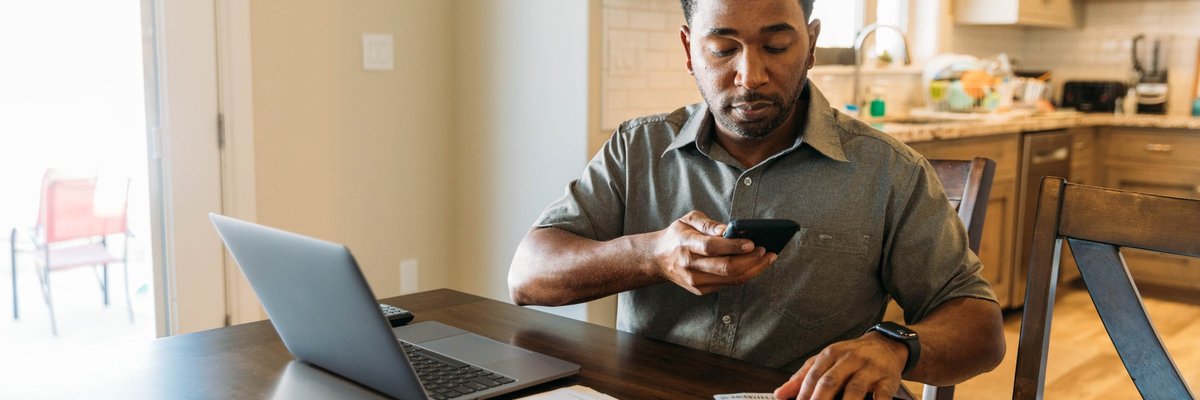If You're Opening a New Bank Account, Make Sure Your Bank Has This One Thing
KEY POINTS
- The Federal Deposit Insurance Corporation (FDIC) is an independent agency backed by the U.S. government, and its role is to insure bank accounts against loss in the event of a bank failure.
- The FDIC covers common deposit accounts, such as checking, savings, money market, and CDs.
- Check out the FDIC's BankFind Suite tool to look up your bank, or read some bank reviews from Motley Fool Money -- we're serious about recommending safe banking institutions to our readers.
Earlier in 2023, a few big-name bank failures made major news in the world of personal finance. And it's easy to see why -- the thought of your bank going under and your hard-earned cash going bye bye with it is scary. In fact, it's almost enough to make you close your trusty savings account, put the money in a jar, and bury it in your backyard. But if you've got your money in an FDIC-insured bank, you can breathe a little easier. Let's take a closer look at the FDIC and see why it's worth taking the time to find a bank with FDIC insurance.
What is the FDIC?
FDIC stands for Federal Deposit Insurance Corporation. This independent agency is backed by the full faith and credit of the U.S. government, and its role is to protect bank account holders from losses that result from bank failures.
If you open a covered account (more on this below), up to $250,000 of the money you keep in it will be protected in the unlikely event that your bank goes under. And you don't have to opt in or pay extra for this coverage. By virtue of your bank being a member, your cash is protected.
The FDIC was created as part of the 1933 Banking Act, which was signed into law by President Franklin Roosevelt on June 16, 1933. The previous few years had been marked by multiple bank failures caused by a run on banks -- which were a reaction to the ongoing Great Depression and severe financial shake-up that began with the stock market crash of 1929. The law went into effect the following year, and initially, the FDIC only protected up to $2,500 of account holders' money. Times have changed, and over the years, limits have increased. The current $250,000 limit was put in place in 2010 as part of the Dodd-Frank Act.
What kinds of bank accounts does it cover?
Chances are good that you have at least one or two of the bank account types covered by FDIC insurance:
- Checking accounts
- Savings accounts
- Money market accounts
- Certificates of deposit (also known as CDs)
- Negotiable order of withdrawal (NOW) accounts
- Money orders, cashier's checks, and other products issued by the insured bank
I have two checking accounts and two savings accounts, and all four of my bank accounts are covered by FDIC insurance. None of my accounts are shared, but if you have a joint bank account, it's important to know that with two people on the account, the protection doubles to $500,000. And if you have money in a brokerage account, that does not fall under the jurisdiction of the FDIC -- instead, cash in that account will be covered by SIPC insurance. Oh, and credit unions have their own insurance scheme -- the NCUA, which fulfills the same role as the FDIC.
How do you find an FDIC-insured bank?
Thankfully, it's pretty darn easy to find out if your current bank (or one that you're considering joining) is covered by FDIC insurance. The agency maintains an extremely useful tool, called the BankFind Suite, where you can look up your bank's name. Plus, Motley Fool Money is serious about recommending safe banks, so all of our best-of picks for the bank account categories above carry FDIC insurance.
In this world of newfangled online-only banks, it's easy to wonder how safe your money really is in the bank. But if your bank account is FDIC insured, you can sleep at night with the knowledge that in the event of a bank failure, your cash is protected.
Our Research Expert
We're firm believers in the Golden Rule, which is why editorial opinions are ours alone and have not been previously reviewed, approved, or endorsed by included advertisers. Motley Fool Money does not cover all offers on the market. Motley Fool Money is 100% owned and operated by The Motley Fool. Our knowledgeable team of personal finance editors and analysts are employed by The Motley Fool and held to the same set of publishing standards and editorial integrity while maintaining professional separation from the analysts and editors on other Motley Fool brands. Terms may apply to offers listed on this page. APYs are subject to change at any time without notice.



